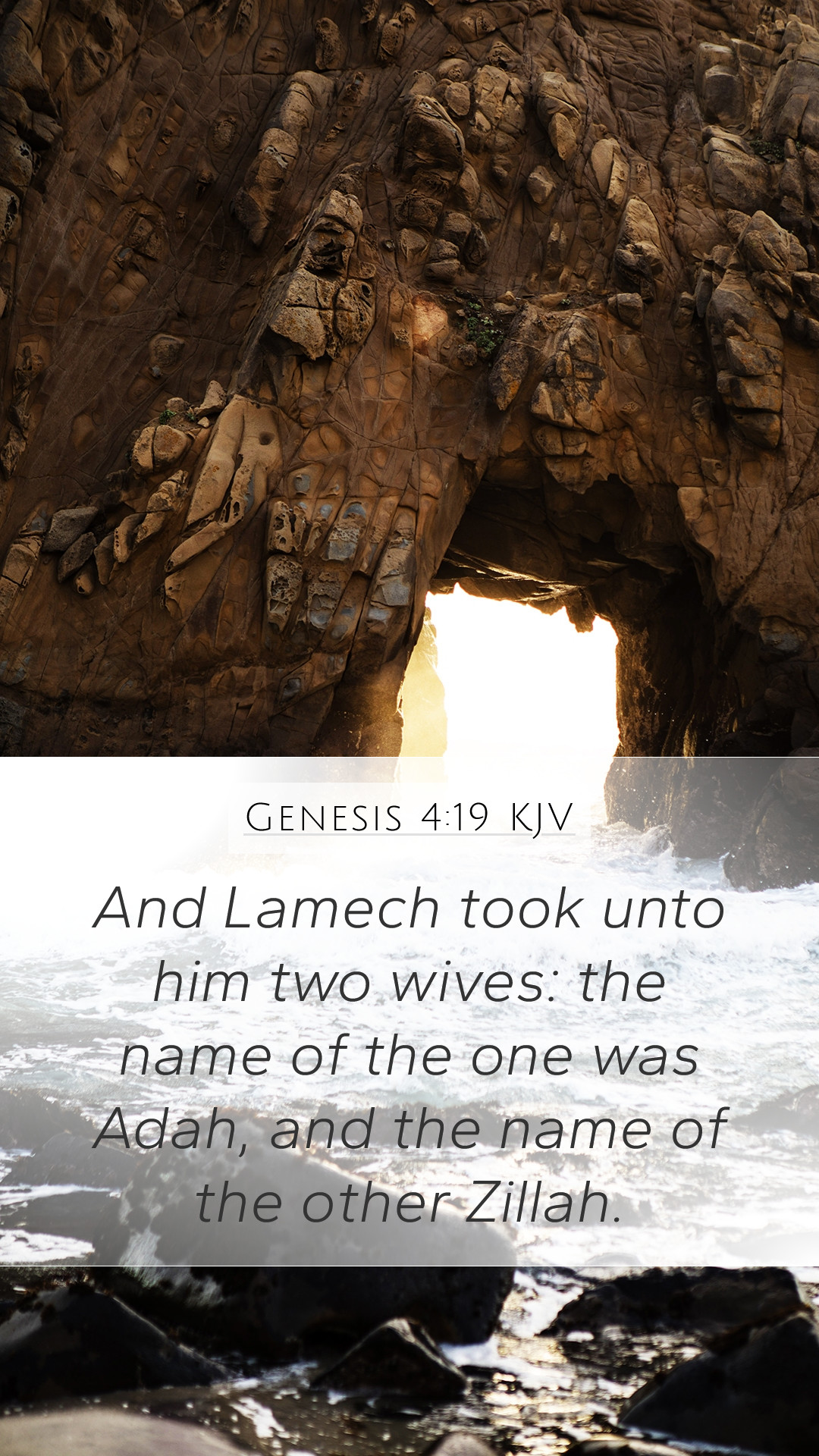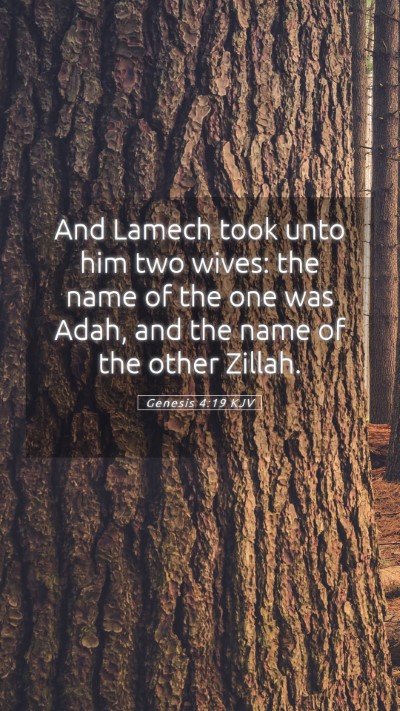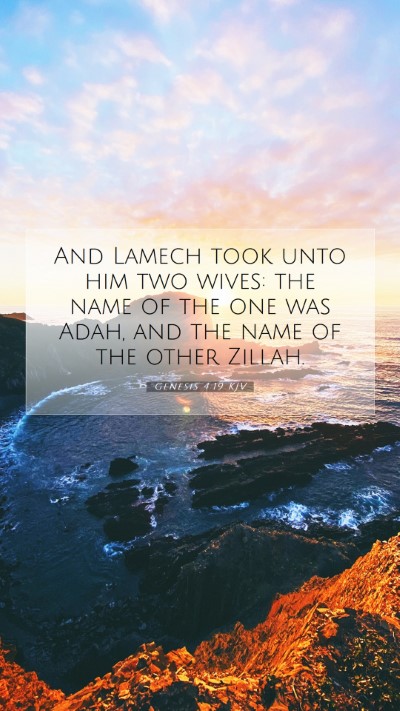Understanding Genesis 4:19
The verse Genesis 4:19 states: “And Lamech took unto him two wives: the name of the one was Adah, and the name of the other Zillah.” This passage introduces Lamech, a descendant of Cain, and highlights the cultural practices of polygamy that emerged early in human history.
Bible Verse Meanings
In this verse, several key themes emerge that warrant deeper exploration:
- Polygamy in Early Humanity: Lamech’s choice to take two wives signifies a departure from the original marital design set forth in Genesis 2:24, where it states, “Therefore shall a man leave his father and his mother, and shall cleave unto his wife: and they shall be one flesh.” This indicates the evolving social structures and norms of humanity post-Fall.
- The Character of Lamech: Lamech is portrayed not merely as an individual but as a representative of a generation that is increasingly distanced from God’s original intentions. His actions can be viewed as a reflection of the moral decay that followed the sin of Adam and Eve, emphasizing the trend toward self-indulgence and deviation from divine ordinances.
- Names with Meaning: The names Adah and Zillah are significant as they may carry meanings related to beauty and shadow respectively, which could represent the dual nature of relationships and human experiences in light and darkness.
Bible Verse Interpretations
Various commentators provide insights into this verse:
- Matthew Henry: Henry emphasizes that this introduction of multiple marriages indicates not only a departure from God’s design but also hints at the selfishness and the pride of Lamech. The assertion of having multiple wives can symbolize human rebellion against God’s order.
- Albert Barnes: Barnes notes the societal implications of Lamech’s actions. He argues that such practices reflect the corruption that was rapidly escalating among humanity, showcasing the consequences of sin and distancing from God's covenant.
- Adam Clarke: Clarke delves into the implications of having two wives, cautioning that this establishes a pattern of behavior that goes against the teachings of Scripture concerning monogamy. He also emphasizes the need for careful interpretation of the cultural norms versus divine laws.
Understanding Scripture
This verse will resonate differently with various readers, leading to numerous interpretations based on cultural and historical context. The understanding of Genesis 4:19 can serve as a springboard for discussions among Bible study groups and for individuals engaging in online Bible study.
Related Bible Cross References
- Genesis 2:24
- Matthew 19:4-6
- 1 Timothy 3:2
- Titus 1:6
- Exodus 20:14
Application of Genesis 4:19 in Daily Life
Understanding this verse goes beyond academia; it calls readers to reflect on the implications of their relationships and commitment styles in today’s world. By analyzing scriptures, individuals can find valuable lessons about the sanctity of marriage and the value of adhering to God’s designs for human relationships.
Conclusion
In summary, Genesis 4:19 serves not only as a historical record but also as a narrative that reflects human tendencies and the complexities of relationships. The teachings drawn from this passage highlight the need for continual reflection on personal and societal practices in light of divine ordinance.


